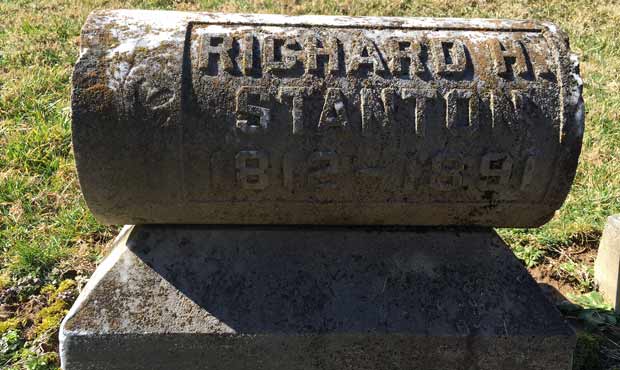Washingtonians can thank rebel supporter for their state’s name

Were it not for a man eventually imprisoned by the U.S. Government for aiding rebels during the Civil War, the Evergreen State would likely have been called Columbia.
It was something of a legislative quirk, Feb. 8, 1853, when U.S. Representative Richard H. Stanton from Kentucky suggested that the new territory north of the Columbia River, about to be carved from Oregon Territory, be named for George Washington.
Related: Little-known tragedy off Vancouver Island had major impact
Joseph Lane was also from Kentucky. In 1853, he was the representative to Congress from Oregon Territory, and he asked that the new area north of the mighty river be named “Columbia Territory.” But Stanton’s suggestion of “Washington” stuck, the bill passed the House and the Senate, and President Millard Fillmore signed it. Washington Territory was created on March 2, 1853, and then Washington became a state in 1889.
Richard H. Stanton is pretty much forgotten in Washington and even in Kentucky nowadays. He’s buried in Maysville, a small town in northeast Kentucky on the Ohio River, where he published a newspaper and then practiced law before and after his three terms in the House of Representatives. Stanton died in Maysville in 1891.
Mayor David Cartmell of Maysville hadn’t heard of Stanton, nor had the reference librarian at the local museum or the superintendent of the cemetery where Stanton is buried. Even in the town named for Stanton in another part of the state, city employees and the local newspaper editor had no idea that their community’s namesake had once christened a state.
One man who does know all about Richard Stanton is Dr. Patrick Lewis. Dr. Lewis works for the Kentucky Historical Society in Frankfort. Lewis says Stanton is a minor figure in Kentucky history but that did he play a key role in a pivotal episode during the Civil War. Kentucky remained in the Union during the Civil War, but the population was divided, and some families have torn apart in support of opposite sides in the conflict.
“In 1861, Richard H. Stanton was accused of assisting rebel recruits who wanted to go and sneak out of Kentucky and join the rebel army, and later come back in and invade,” Lewis said. “Stanton denied these reports up and down. But he was eventually arrested and sent to prison, first in Ohio and then New York, for assisting the rebellion.”
Lewis says that Stanton’s stay in prison was fairly short.
“He was let out in 1862 after he swore a loyalty oath to the United States.”
Lewis isn’t convinced of Stanton’s innocence.
“Stanton swore up and down that he had never done anything to materially assist the Confederacy, but what he may or may not have done under the cover of the night there in the streets of Maysville, we’ll never know.”
Lewis also says that Stanton’s son raised a company of Confederate soldiers and served in the Confederate Army throughout the war.
“So there is a decided family Confederate connection there,” Lewis said.
And there’s a connection, at least historically speaking, to the state almost known as Columbia. Say WA?
Editor’s note: Originally published February 24, 2016.
You can hear Feliks every Wednesday and Friday morning on Seattle’s Morning News with Dave Ross and Colleen O’Brien, read more from him here, and subscribe to The Resident Historian Podcast here. If you have a story idea, please email Feliks here.
[ad_2]
Share this news on your Fb,Twitter and Whatsapp
Times News Network:Latest News Headlines
Times News Network||Health||New York||USA News||Technology||World News